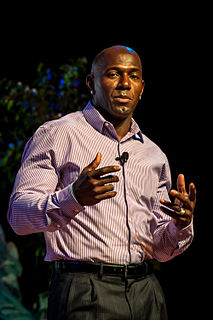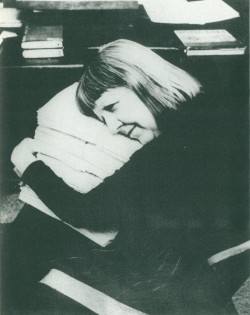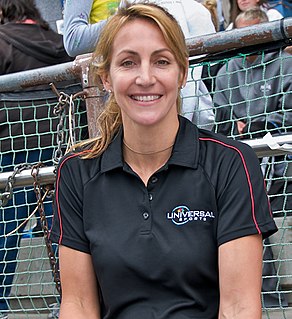A Quote by Shari Redstone
I need to figure out how to sleep better. Most of my binge watching is after midnight. Most of my baking is after ten. I'm really working on trying to sleep more. No devices in my bed, get into a routine. I've started doing yoga every night.
Related Quotes
With a new baby, you have a bad day now and again because you're particularly tired, but most of the time, you're fine. You spend a lot of your time trying to figure out how you can get more sleep, but really, you're better off just giving up and admitting that you're not going to, so forget about it.
We've looked at sleep diaries of patients with insomnia, and they'll say that they don't sleep for one or two days. And the body actually has a natural function, after about the third day to start catching up and you get a little bit more sleep the third night. And that's usually what I tell my patients.
I'm a big sleep guy. I think my schedule sorta starts with sleep and making sure I get enough of it. I'm an eight-plus hours guy. I would love to sleep more. I definitely try to create a routine and not stray from that routine at all, but I will take advantage of having an off-morning. And I really have become a fan of the 20-minute catnap.
I've seen the same thing emerge in the research around the interaction of sleeping and moving and eating: if you get a good night's sleep, you are significantly more likely to make the right choices about what you eat the next morning, you're more likely to work out, you're more likely to get a better night's sleep the next night.
I'm always amazed at friends who say they try to read at night in bed but always end up falling asleep. I have the opposite problem. If a book is good I can't go to sleep, and stay up way past my bedtime, hooked on the writing. Is anything better than waking up after a late-night read and diving right back into the plot before you even get out of bed to brush your teeth?
It is never a good practice to continue to sleep after sunrise. We should not think of staying in bed once we are awake; it increases laziness and dullness. Those who cannot decrease the amount of sleep quickly may do it in gradual stages. Those who do regular spiritual practice do not need much sleep.



































